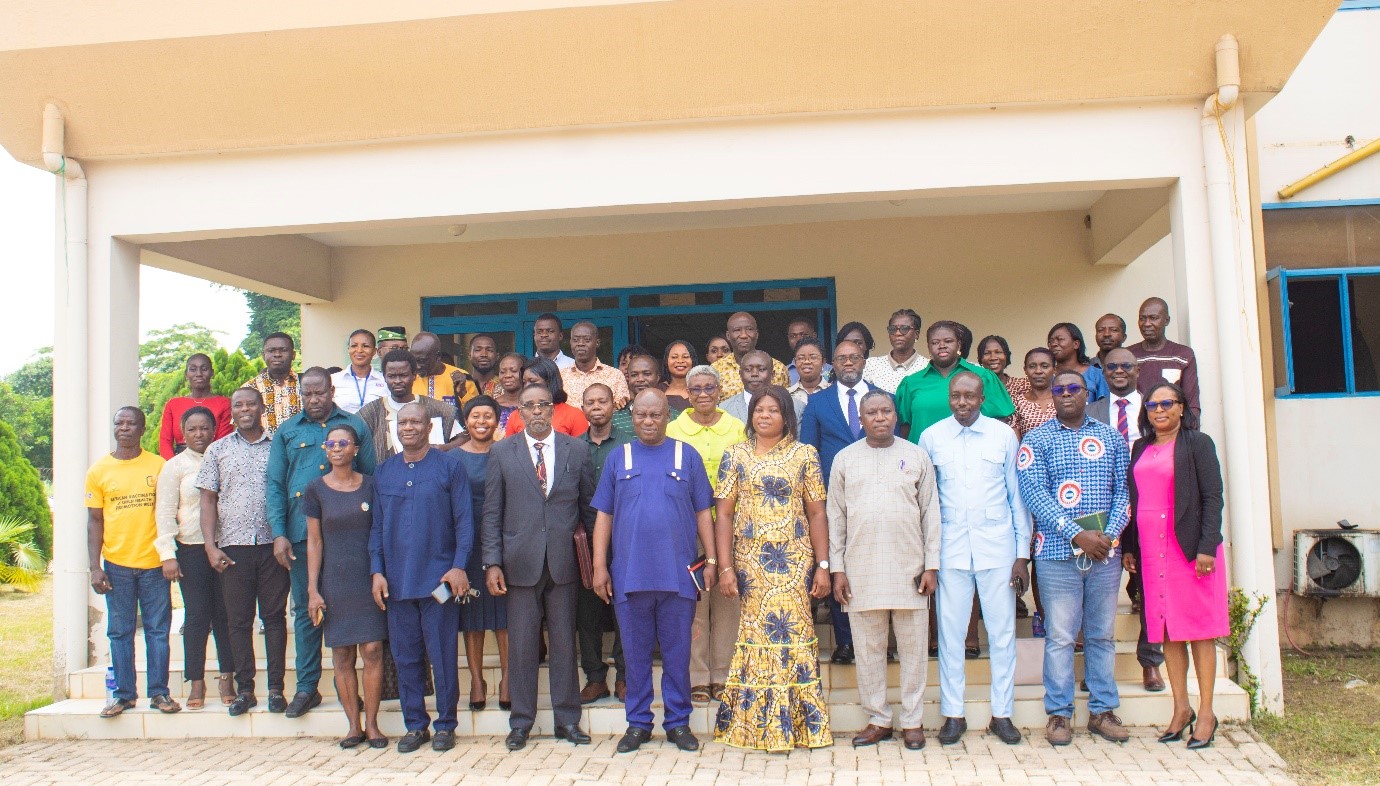Transforming Agriculture: CSIR-Crops Research Institute Launches Project to Tackle Climate Challenges and Ensure Food Sustainability
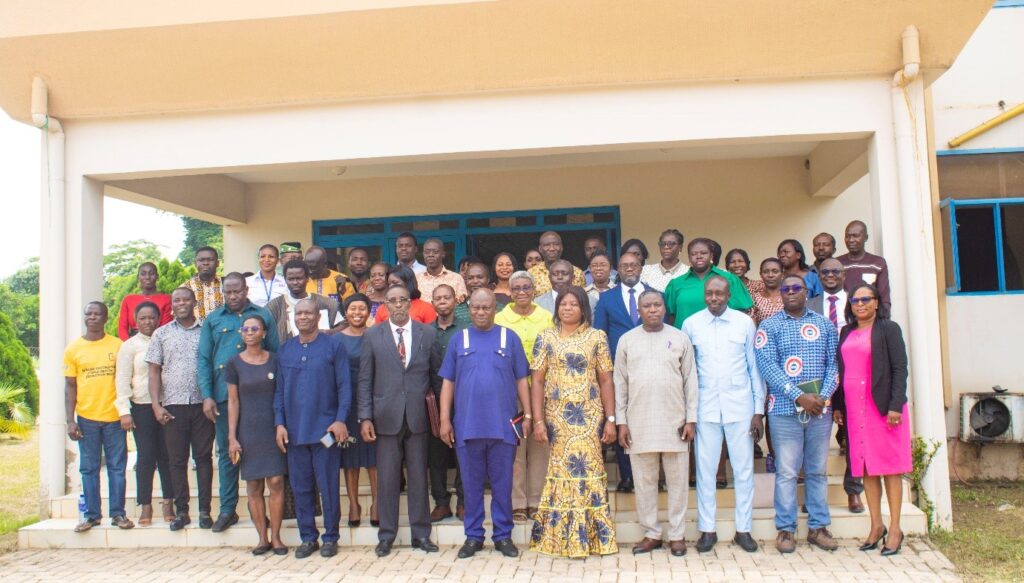
In a bid to address the pressing issues of climate change and food sustainability, the CSIR-Crops Research Institute has embarked on a groundbreaking initiative aimed at revolutionizing agricultural practices. The Institute has launched the Agroecology and Circular Economy of Ecosystems Services (ACE4ES) project. The project, which is funded by the Climate and Clean Air Coalition (CCAC) is focused on implementing agroecology and circular economy practices to reduce emissions in maize and rice production.
Recent studies have revealed that conventional farming methods are major contributors to climate change, emitting harmful pollutants into the atmosphere. Of particular concern are maize and rice farming practices, which have been identified as significant sources of these pollutants.
The ACE4ES project aims to combat these detrimental effects by exploring innovative agricultural technologies. By leveraging agroecology and circular economy principles, the project seeks to mitigate pollutant emissions while simultaneously enhancing soil health and crop productivity.
In his welcome address, Prof. Moses Brandford Mochiah, the Director of the CSIR-Crops Research Institute, emphasized the institute’s commitment to addressing climate change through initiatives like ACE4ES. He hailed the project as a significant milestone in the ongoing battle against environmental degradation.
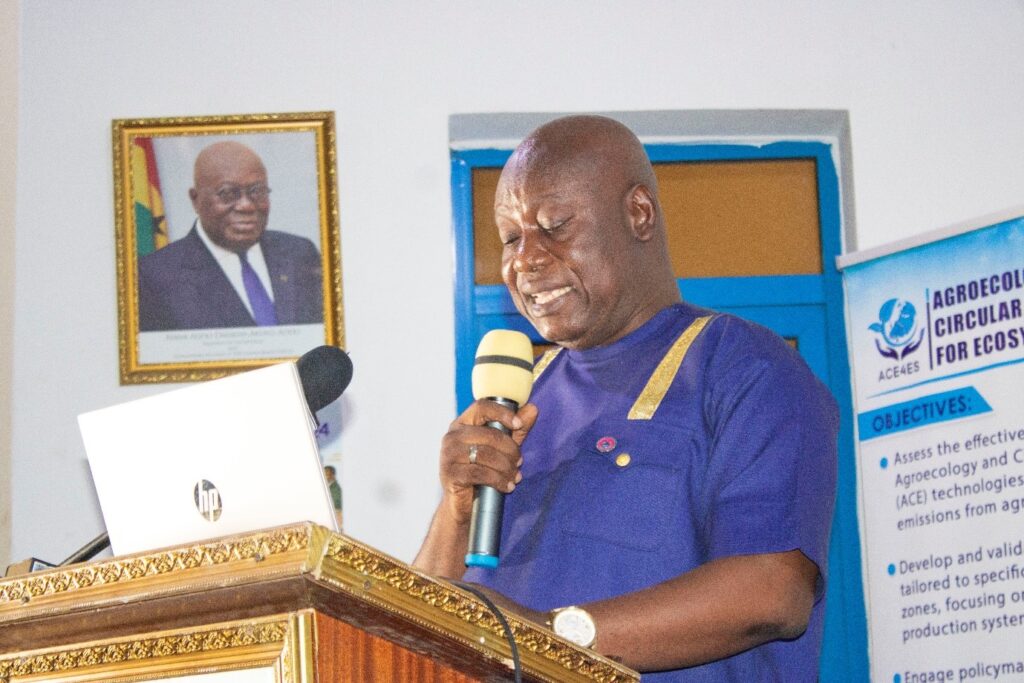
Dr. Kwaku Onwona-Hwesofour Asante, a research scientist at the CSIR-CRI, who is also the project lead and principal investigator of the ACE4ES project, presented a comprehensive overview of the project’s frameworks, objectives, and implementation strategies. He also highlighted the environmental impacts of rice and maize production and the importance of promoting resource recycling in agriculture due to the substantial production of biomass.
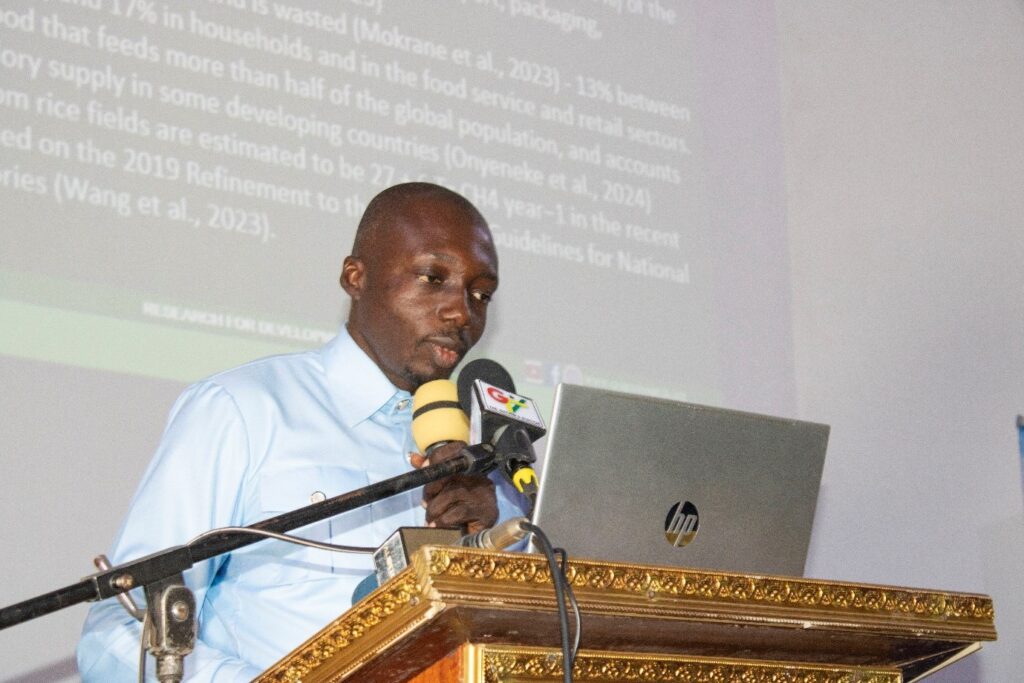
Dr. Asante explained the harmful effects of methane and black carbon on health and the environment, giving participants a clear understanding of the impact of climate change. He indicated that a combined approach of agroecology and circular economy is the way forward to driving positive environmental outcomes.
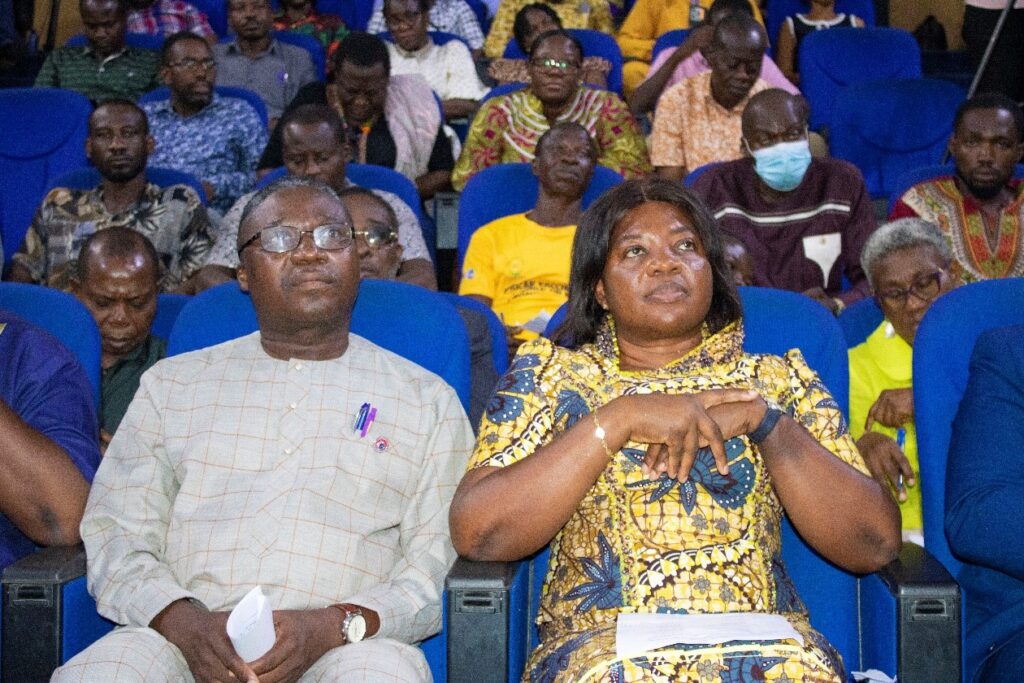
He further stated that as part of the project objectives, the project will conduct trials of various farming methods, including crop-livestock systems, integrated soil fertility management, composting, biochar application, site-specific nitrogen management, rotational cropping, and minimal tillage/zero tillage. These trials will determine the most effective techniques for both the environment and farmers.
The project will also establish a technology park at the CSIR-CRI to facilitate validation exercises. The multicultural technology park will serve as a hub for knowledge exchange, capacity building, and technology transfer, empowering stakeholders to implement ACE4ES solutions. Subsequently, successful technologies will be scaled up for broader adoption by farmers and agricultural stakeholders.
He expressed optimism about the potential of these technologies to revolutionize farming practices, stating that increased adoption of ACE practices could lead to reduced emissions and improved agricultural productivity.
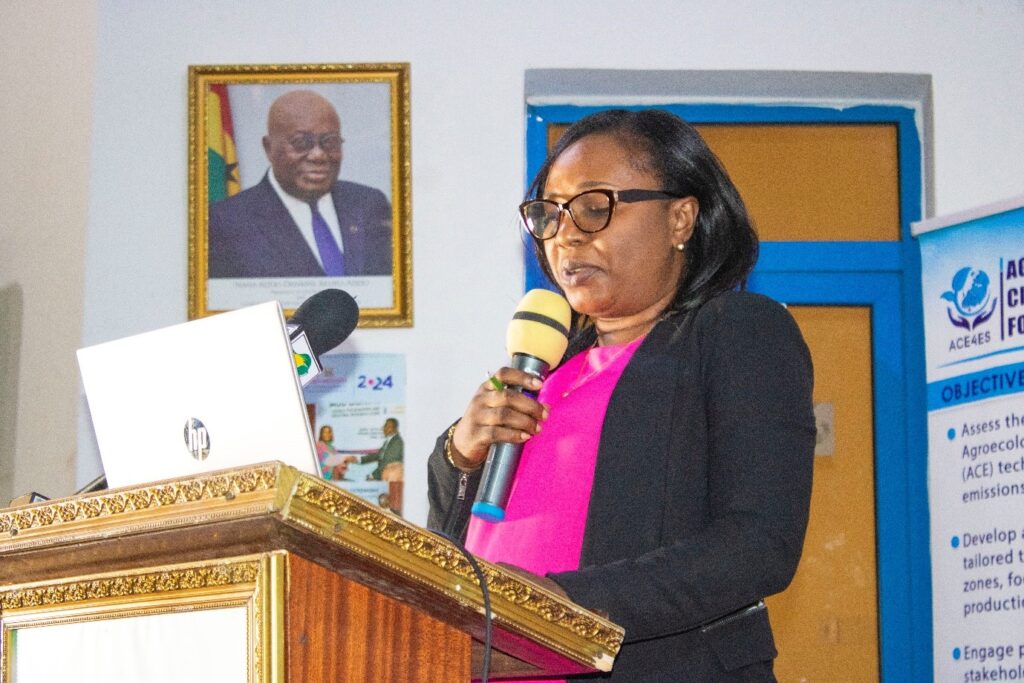
Ms. Catalina Etcheverry, a representative of the CCAC Programme Management Team, who delivered her address virtually via Zoom, pledged the funders’ continuous support for the project. She expressed her delight in collaborating with the CSIR-Crops Research Institute in future projects.
“The purpose of our sponsorship is to support climate initiatives aimed at addressing climate change. This project meets that specific objective and hence our support. By reducing emissions, we aim to enhance food systems, ensure access to safe and nutritious food, and promote agricultural sustainability”, she stated.
The Director-General of the CSIR, Prof. Paul Pinnock Bosu, who chaired the occasion, expressed gratitude to stakeholders for supporting the project and urged continued commitment to its goals.
Delivering her address, the Minister of Environment, Science, Technology and Innovation (MESTI), Hon Ophelia Mensah Hayford, who was a special guest at the event, emphasised the importance of smart agriculture for a sustainable future and highlighted the ACE4ES project as a significant national initiative. She lauded the CSIR and urged the Council to increase its visibility and promote its technologies to the public. She stated, “CSIR is doing many novel things but lacks publicity, hence CSIR must enhance its publicity and media engagement, and talk about their research findings because science must communicate with society for society to gain relevance from research results.” She pledged MESTI’s commitment to supporting the ACE4ES project and officially declared the Agroecology and Circular Economy of Ecosystems Services project duly launched.
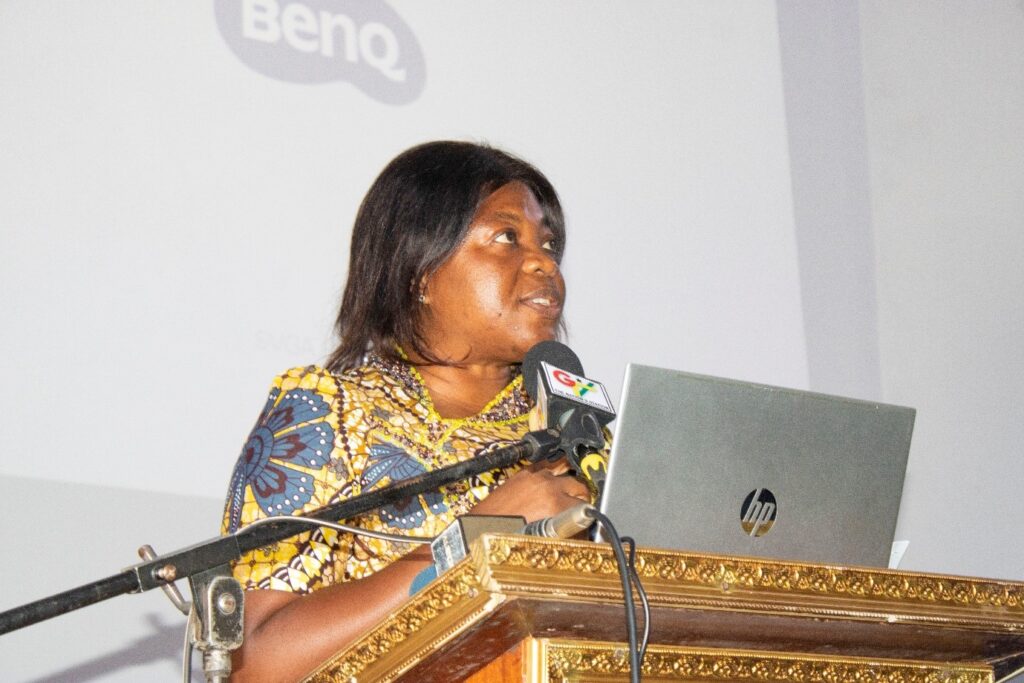
The launch of the ACE4ES project signals a new chapter in the fight against climate change and food insecurity in Ghana and beyond. With its bold vision and commitment to excellence, the CSIR-Crops Research Institute is poised to lead the way towards a more sustainable and resilient future for agriculture.
Authors: Patricia Konadu Mensah, Bernard Sakyiamah, Enoch Bobie Agyemang, Linda Agyeman, Lynda Nsafoah, Dennis Gyasi Boakye

